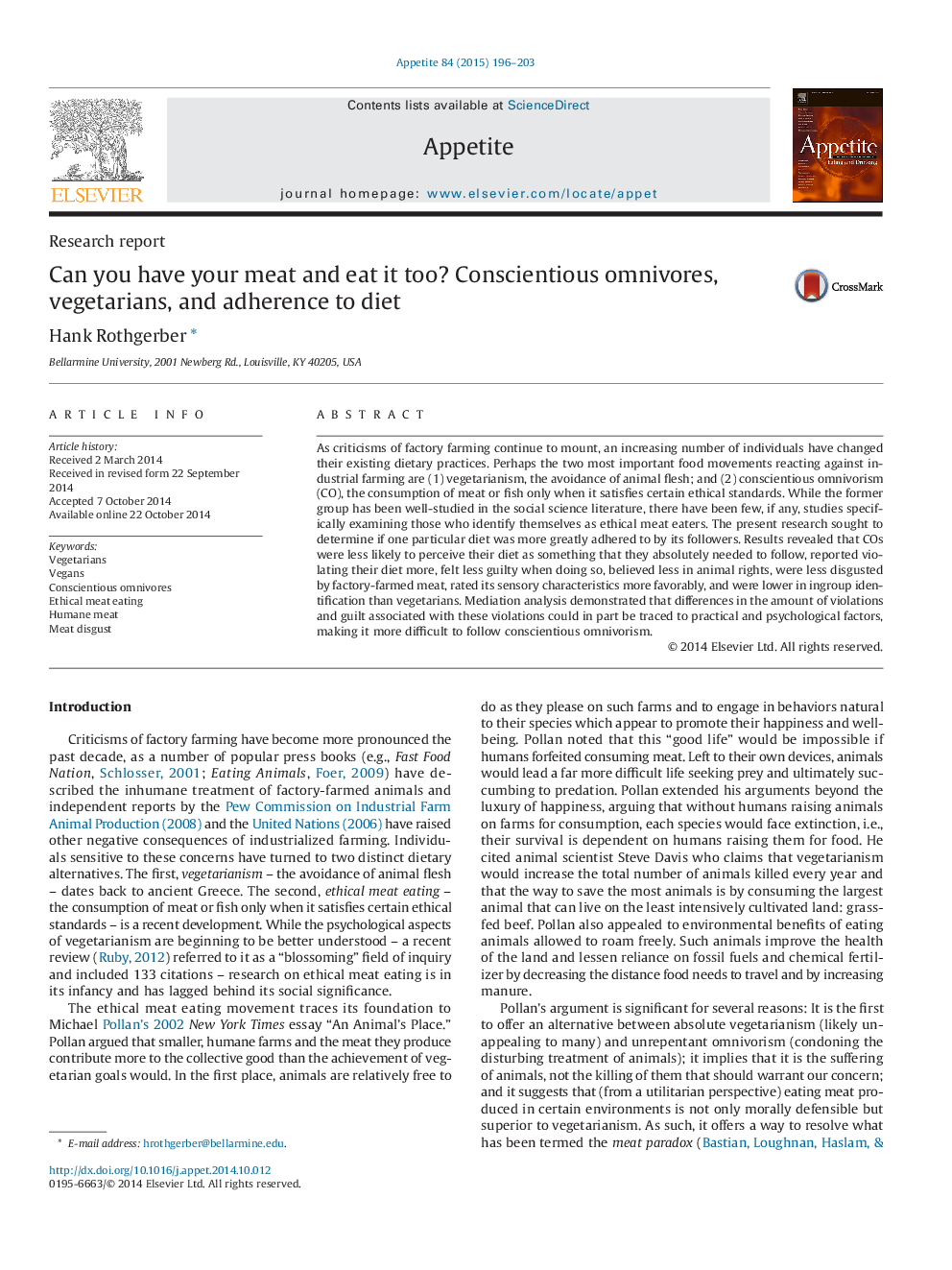| Article ID | Journal | Published Year | Pages | File Type |
|---|---|---|---|---|
| 7309735 | Appetite | 2015 | 8 Pages |
Abstract
As criticisms of factory farming continue to mount, an increasing number of individuals have changed their existing dietary practices. Perhaps the two most important food movements reacting against industrial farming are (1) vegetarianism, the avoidance of animal flesh; and (2) conscientious omnivorism (CO), the consumption of meat or fish only when it satisfies certain ethical standards. While the former group has been well-studied in the social science literature, there have been few, if any, studies specifically examining those who identify themselves as ethical meat eaters. The present research sought to determine if one particular diet was more greatly adhered to by its followers. Results revealed that COs were less likely to perceive their diet as something that they absolutely needed to follow, reported violating their diet more, felt less guilty when doing so, believed less in animal rights, were less disgusted by factory-farmed meat, rated its sensory characteristics more favorably, and were lower in ingroup identification than vegetarians. Mediation analysis demonstrated that differences in the amount of violations and guilt associated with these violations could in part be traced to practical and psychological factors, making it more difficult to follow conscientious omnivorism.
Keywords
Related Topics
Life Sciences
Agricultural and Biological Sciences
Food Science
Authors
Hank Rothgerber,
